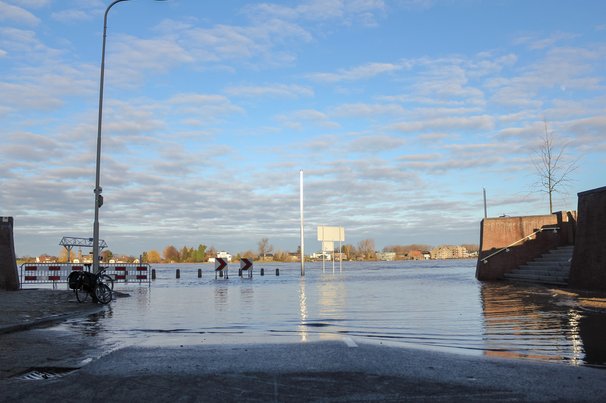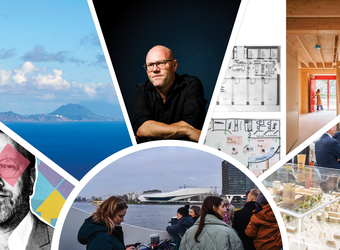12 februari 2015
3 minuten
Onderzoek Climate change poses new and unexpected challenges to our current way of living, working, recreation and transport. On the one hand we have to think about changing to a much more sustainable and climate durable way of living by mainstreaming mitigation strategies into our daily practices. That means that citizens, enterprises and governments have to think about more sustainable practices, procedures and investments. There are many examples of mitigation programs with ambitious goals to reduce carbon gases in cities like London, New York, Toronto, Berlin and Rotterdam (see Clinton Climate Initiative—http://www.clintonfoundation.org/*).
By Arwin van Buuren, Peter P.J. Driessen, Marleen van Rijswick, Piet Rietveld, Willem Salet, Tejo Spit, Geert Teisman
Although mitigation is necessary to slow down climate change, it is not enough. It is also necessary to adapt our societies to the (potential) impacts of climate change we cannot prevent. Due to changing weather conditions, we have to think about the spatial organization of our society, because existing ways of using our environment are becoming more risky, are no longer desirable or even possible. While many definitions of adaptation to climate change are in circulation, one of the most commonly used definitions is the IPCC’s, which defines adaptation as “the adjustment in natural or human systems in response to actual or expected climatic stimuli or their effects, which moderates harm or exploits beneficial opportunities.” Adaptation thus focuses on anticipating climate impacts in three ways: minimizing potential damage; coping with the consequences of impacts; and taking advantage of opportunities.
The spatial impact of climate change and thus the need for adaptation can be substantial. The rise of the sea level can be a serious threat for the urbanized deltas of our world. Long periods of extreme drought pose severe challenges to vital domains such as agriculture and shipping. Heat stress can cause significant numbers of victims in densely populated cities. Extreme wind conditions call for serious investments in air transport planning.4 In general there are at least four spatial domains where climate change has an impact:
(1) The main water system and fresh water supply;
(2) Agriculture and nature;
(3) The urban environment;
(4) The various networks (infrastructure, energy, transport, IT).
However, the question is whether our current way of organizing spatial planning (in terms of design, decision-making and implementation) enables or supports the realization of climate adaptation. In this paper we explore the challenges climate change poses for the way western societies organize their spatial planning, with a special focus on the implications for the legal principles that structure spatial planning, the governance of actual planning processes and the arrangements to distribute costs and benefits of spatial investments. Spatial planning refers to the strategies and methods used by governmental agencies—sometimes in close cooperation with private actors—to influence the distribution of activities in spaces on various levels. We will analyze both the characteristics of climate change and its consequences on the spatial environment, in order to formulate the demands that climate adaptation makes on the arrangement of spatial planning. These characteristics involve the uncertainty of climate change, the controversy of the urgency to act, the complexity of climate change and the multifaceted character of climate change impacts. They do have consequences for at least three cornerstones of spatial planning which will be analyzed in this paper; the institutional arrangements for planning (the institutional principles and rules of the game), the governance of planning processes (the way in which concrete planning processes are organized) and the role of public-private initiatives and the relevance of financial instruments in order to balance costs and benefits. We will conclude this paper by summing up the conditions that are relevant for effectively embedding climate adaptation into spatial planning. To illustrate our main line of argument we frequently refer to the Dutch debate about climate adaptation, the proposals of the Delta Committee6 to anticipate on climate change in the water domain, and recent proposals to integrate climate adaptation in the domains of water management, urban planning and nature conservation.
Cover: ‘2015.03.02_Towards adaptive_660’





